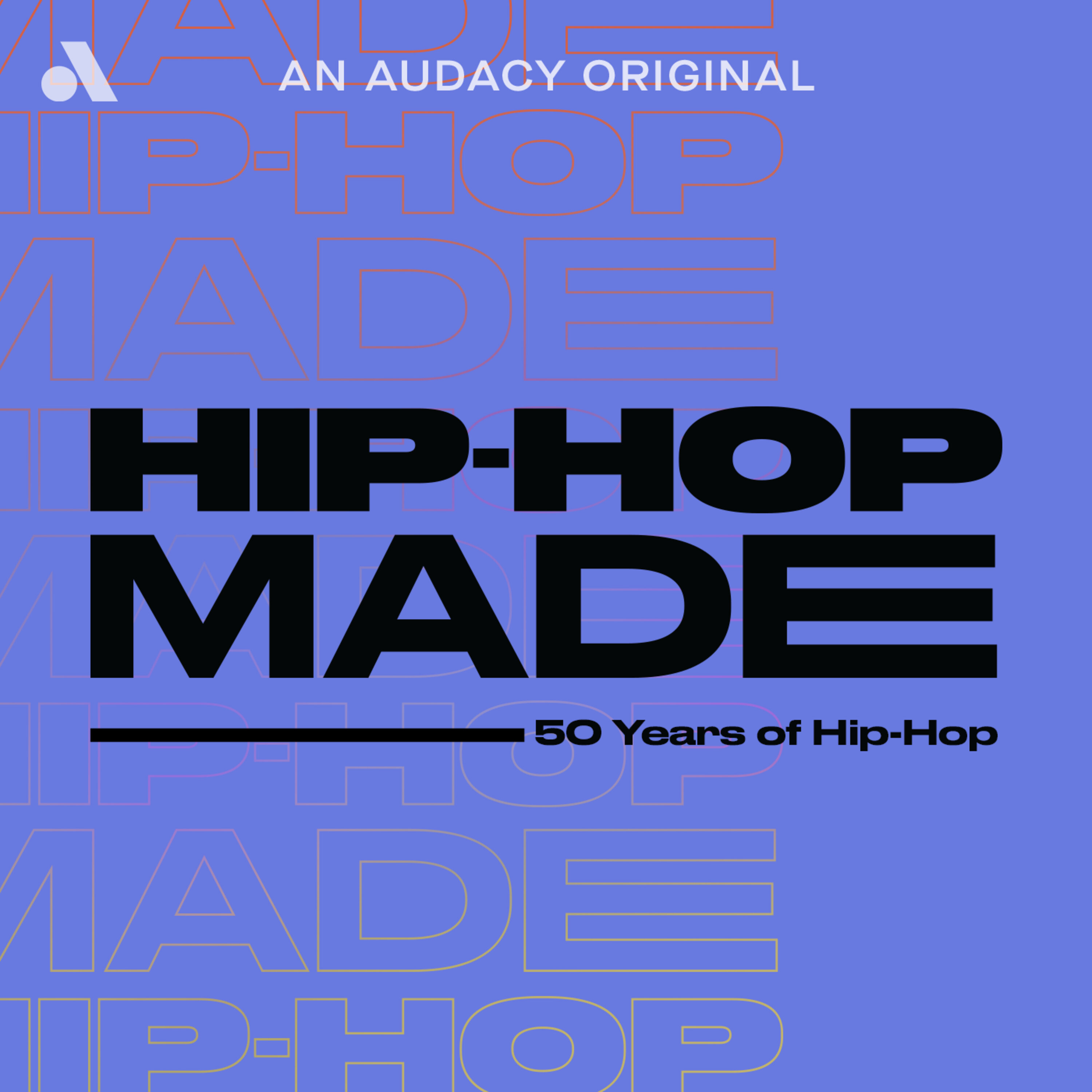Hip-Hop Made: Maseo of De La Soul on earliest influences and untold Hip-Hop history
Description
Continuing our celebration of Hip-Hop's 50th anniversary on Audacy's Hip-Hop Made, De La Soul co-founder and turntablist Maseo shares with us his excitement to finally be streaming on music services after quite a long wait, as well as some of the most memorable parts of his storied career.
One of the very first DJ/Emcee moments that host Mike Street at Audacy’s 106.5 The Beat in Richmond, VA remembers from back in the day is Maseo’s part in De La Soul’s “Bitties in the BK Lounge” off of 1991's De La Soul Is Dead. Mike admits, “you know, there were others but that was the one that stood out with the beat and everything, and by the way, that's available for streaming right now, in case you didn't realize,” as of March 2023 after quite a long time off of streaming services due to contractual and label shortcomings.
“Yes it is, yes it is. Ain’t that crazy,” Maseo says with a smile.
As a longtime fan, Mike was actually unaware that De La Soul’s music was unavailable because he actually owns their catalog. “Whether it's on my iPod or just in my crates or on a hard drive with the vinyl," he admits. "I didn't realize until in the mid-2000s that it wasn't streaming. It's well documented that that was due to, I guess you call it contractual conflicts, but people don't realize, they just didn't anticipate back then that the digital age would exist, so they didn't know how to split that bread.”
“Well, our situation was a little more unique than everyone else's,” says Maseo. Their record label at the time, Tommy Boy, simply didn't have any language regarding streaming in their contracts, “but moving forward,” he adds, “when we did renegotiate with Tommy Boy, there was some language implemented that would be like that, that most labels started implementing after the late 80s anyway. They started to implement ‘the universe’ instead of 'the world,' you know. So, when they implemented ‘the universe,’ it made it open for mediums such as the Internet or maybe even going out into space.”
“To Tommy Boy's demise,” he continues, “they folded. So whatever renegotiation there was with us, it was all in breach. Once they folded -- it wasn’t like we left, they left -- so all the contracts are null and void. It was pretty much like doing a new deal for old music.” Label founder Tom Silverman, he says, “was trying to revert back to a very old contract that wasn't even the contract that we renegotiated on. Him trying to revert back all the way to ‘89 was just asinine for the business that we had continued to do. The value of what we developed to be and what we learned of our own value, that just to signing that Tommy Boy deal would have been something that would have just been done for the sake of putting the music out, and we would have been in the same kind of rut.”
“Even in the first time, I can't even say it was a bad deal,” Maseo adds. “It was a great deal based on my situation. It was also a great deal based on the era that we was in, you know, and what was also considered market value at that time because I can't sit here and say Tommy Boy was the only one giving out these contracts. It was the market… and at some point, we superseded the industry standard.”
Looking back to before De La Soul's first album, 1989's 3 Feet High and Rising, and the influence Hip-Hop culture had on Maseo growing up, he says at the time, it wasn't about doing music for a living, it was simply doing music for the love of it. “It didn't seem like music really presented any economic opportunity,“ he explains, “but there was this thing happening here… We didn't have a name for it yet. ‘Hip-Hop,’ you know, and it was happening behind DJing, B-boy and break dancing, writing graffiti, lacing up your sneakers a certain way, even down to watching karate flicks. All of that played a big part of this developing culture... All these different factors that played a significant part
More Episodes
Back with another installment of Hip-Hop Made to commemorate the 50th anniversary of the birth of Hip-Hop, Busta Rhymes says he is bringing "feel good energy" back to Hip-Hop as he is gearing up to release his new album.
Teaming up with some of the biggest names in Hip-Hop, Busta's new...
Published 08/03/23
Published 08/03/23
Back with another installment of Hip-Hop Made to commemorate the 50th anniversary of the birth of Hip-Hop, Audacy's V-103 Atlanta caught up with Big Boi, 1/2 of the legendary rap duo, Outkast, to talk about how he believes Atlanta influenced the genre.
As an Atlanta rapper himself, he believes...
Published 07/24/23


